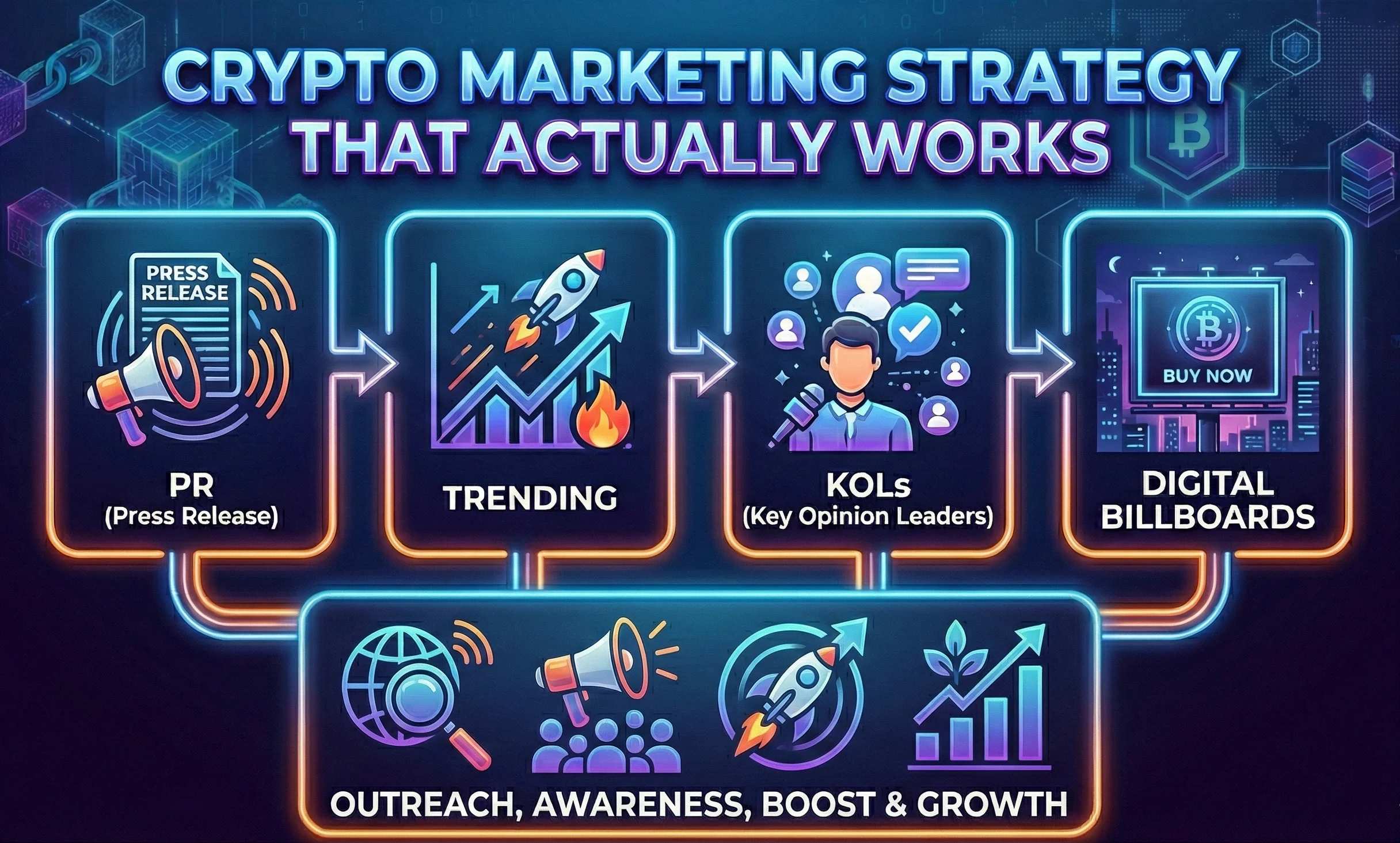Navigating the world of crypto and blockchain marketing requires understanding both digital marketing basics and the unique needs of this highly dynamic industry. Since cryptocurrencies and blockchain projects differ from traditional products, successful marketing in this field must address complex concepts, a tech-savvy audience, and strict advertising regulations. For beginners, let’s break down the key strategies to effectively market in the blockchain and crypto space.
1. Understanding Your Audience in the Crypto Space
Crypto and blockchain projects appeal to a range of audiences, from tech enthusiasts and developers to general investors and everyday consumers. Knowing your target audience is crucial for crafting messaging that resonates:
- Developers and Crypto Enthusiasts: This group is often focused on technological innovation, utility, and decentralization.
- Investors and Traders: Driven by potential ROI, this segment is interested in a project’s market value, security, and growth prospects.
- Consumers and the General Public: Education-focused content is essential here to help them understand blockchain benefits and usability.
Conduct market research to identify which group(s) your project aims to reach and adapt your messaging to appeal directly to their needs and interests.
2. Choosing the Right Crypto Marketing Channels
A multi-channel approach is effective for reaching different segments of the crypto audience. Here are the primary channels that have proven to be effective in blockchain marketing:
- Social Media Marketing: Channels like Twitter, LinkedIn, and Reddit are popular among crypto enthusiasts. Twitter is key for real-time updates, LinkedIn helps establish credibility, and Reddit engages communities through discussions.
- Content Marketing: Blogs, educational videos, and guides help demystify complex blockchain concepts, showcasing thought leadership and building trust. Medium and Substack are popular content platforms in this space.
- Community Building: Platforms like Discord and Telegram provide direct channels to engage with followers, answer questions, and share news. Building a loyal community fosters a network of advocates for your project.
- Influencer Marketing: Working with crypto influencers can expand your project’s reach. Crypto-specific influencers on Twitter, YouTube, and TikTok can introduce your project to their dedicated followers, boosting awareness and engagement.
3. The Role of PR in Crypto Marketing
Public relations is a valuable part of any crypto marketing strategy. A well-executed PR campaign establishes credibility, especially for new projects looking to build trust. Partnering with crypto-specific publications and media outlets like CoinDesk, CryptoSlate, and Decrypt helps in gaining visibility among reputable audiences.
Press releases are a common tool in PR, but ensure that the story you’re promoting is newsworthy. Noteworthy events such as partnerships, funding rounds, product launches, or tech upgrades can grab media attention and build brand authority.
4. Optimizing SEO for Blockchain Projects
Search engine optimization (SEO) is crucial to make sure potential users or investors can find your project online. Here are a few SEO tips specific to the blockchain industry:
- Keyword Research: Use tools like Ahrefs or SEMrush to identify relevant crypto and blockchain keywords, including terms like “blockchain project,” “crypto exchange,” or “Web3 applications.”
- Educational Content: Create tutorials, how-to guides, and articles explaining core blockchain concepts. This content can drive organic traffic and establish your project as a knowledge leader.
- Technical SEO: Make sure your website is fast, mobile-friendly, and follows best practices for indexation. Technical errors can hurt visibility in search results.
5. Compliance and Advertising in Crypto
Due to regulatory scrutiny, crypto projects face restrictions on traditional advertising platforms. Google and Facebook, for example, have strict guidelines for crypto advertising. Here’s how to navigate these restrictions:
- Understand Ad Guidelines: Be aware of Google and Facebook’s advertising policies for crypto projects. Some platforms require proof of regulatory compliance before you can run ads.
- Work with a Licensed Marketing Partner: Crypto-focused marketing agencies often have the expertise to manage advertising within regulatory frameworks and can help you design compliant campaigns.
- Explore Alternative Ad Channels: Crypto websites like Coinzilla and Adshares offer specialized advertising for crypto and blockchain projects, providing targeted traffic and engagement.
6. Measuring the Success of Your Crypto Marketing Efforts
Success in crypto marketing can be measured by engagement rates, community growth, website traffic, and conversions. Tracking tools like Google Analytics, Twitter Analytics, and blockchain analytics platforms like Dune Analytics offer insights into how well your campaigns resonate with your audience. Setting clear goals, such as increasing community members or website conversions, will help you monitor and adjust strategies as needed.
Additional reading: Understanding the cost of crypto marketing
Conclusion
Effective marketing in the crypto and blockchain industry requires an adaptable approach that combines education, community-building, SEO, and compliance. By understanding your audience, selecting the right channels, and optimizing for visibility, your project can gain traction and establish a strong market presence.



